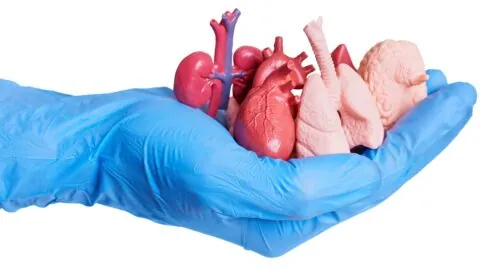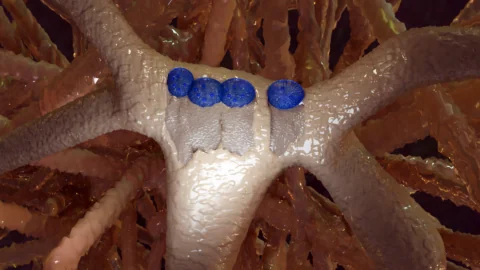August 29, 2024
In Aging, researchers have described how the changing production of skin cells' proteins is a core part of their age-related decline. Understanding why skin cells lose their function In healthy skin, dermal fibroblasts produce the proteins needed to maintain the extracellular matrix (ECM), the network of collagen and elastin that holds soft tissues together [1]....
April 22, 2024
With an in-depth examination tool in hand, researchers publishing in Aging have done a preliminary examination of the muscle protein differences between younger and older people and how older people's proteins change with exercise. The power to take a close look This paper begins with a discussion of proteomics, the science of analyzing what proteins...
February 12, 2024
In Nature Aging, researchers have published a method of predicting dementia over a decade before it actually occurs. Early detection was known to be possible It has been known that it is possible to observe early signs of brain deterioration years before dementia occurs [1]. However, actually performing accurate tests in a clinical setting has...
December 15, 2023
In Nature, a team has published its research on using protein analysis to estimate the aging of specific organs. Aging is not all at once While the processes of aging affect every organ of every person, the rates at which these processes affect these organs can vary greatly in people [1] and mice [2]. Similar,...
October 24, 2023
Assisted by TruDiagnostic, a team of researchers has published a preprint paper in which omics data has been used to create an epigenetic methylation clock. Why -omics? Epigenetic Clocks - What are they?An epigenetic clock is a biochemical test that uses DNA methylation levels and accumulation of methyl groups on DNA to determine biological age....
August 21, 2023
Researchers publishing in Aging have uncovered some of the molecular mechanisms behind why mesenchymal stem cells (MSCs) do and don't differentiate into bone-building osteoblasts, unlocking a potential new approach to osteoporosis. A matter of cellular fate MSCs are downstream of pluripotent stem cells: they can differentiate into multiple cell types, but not every somatic cell...








